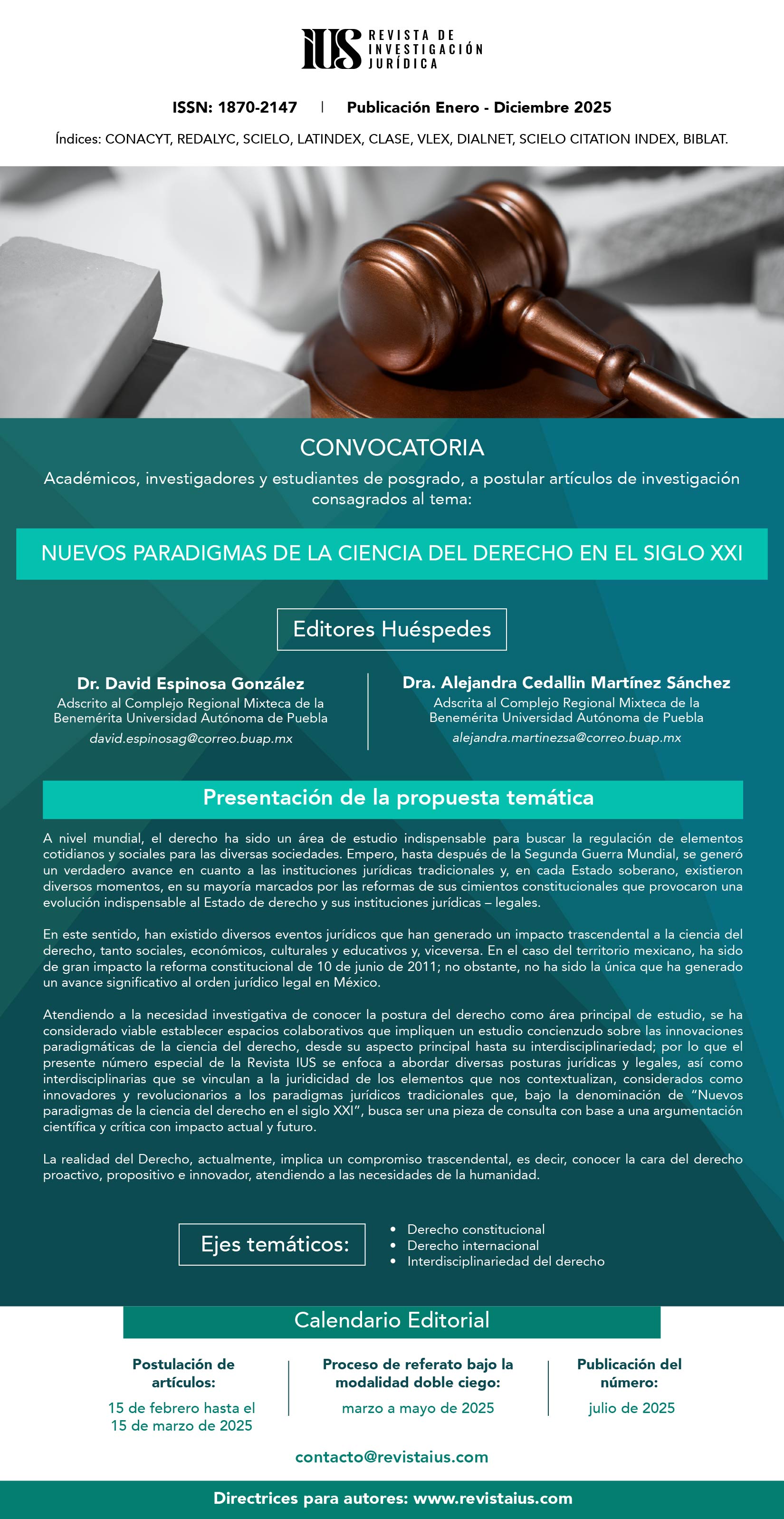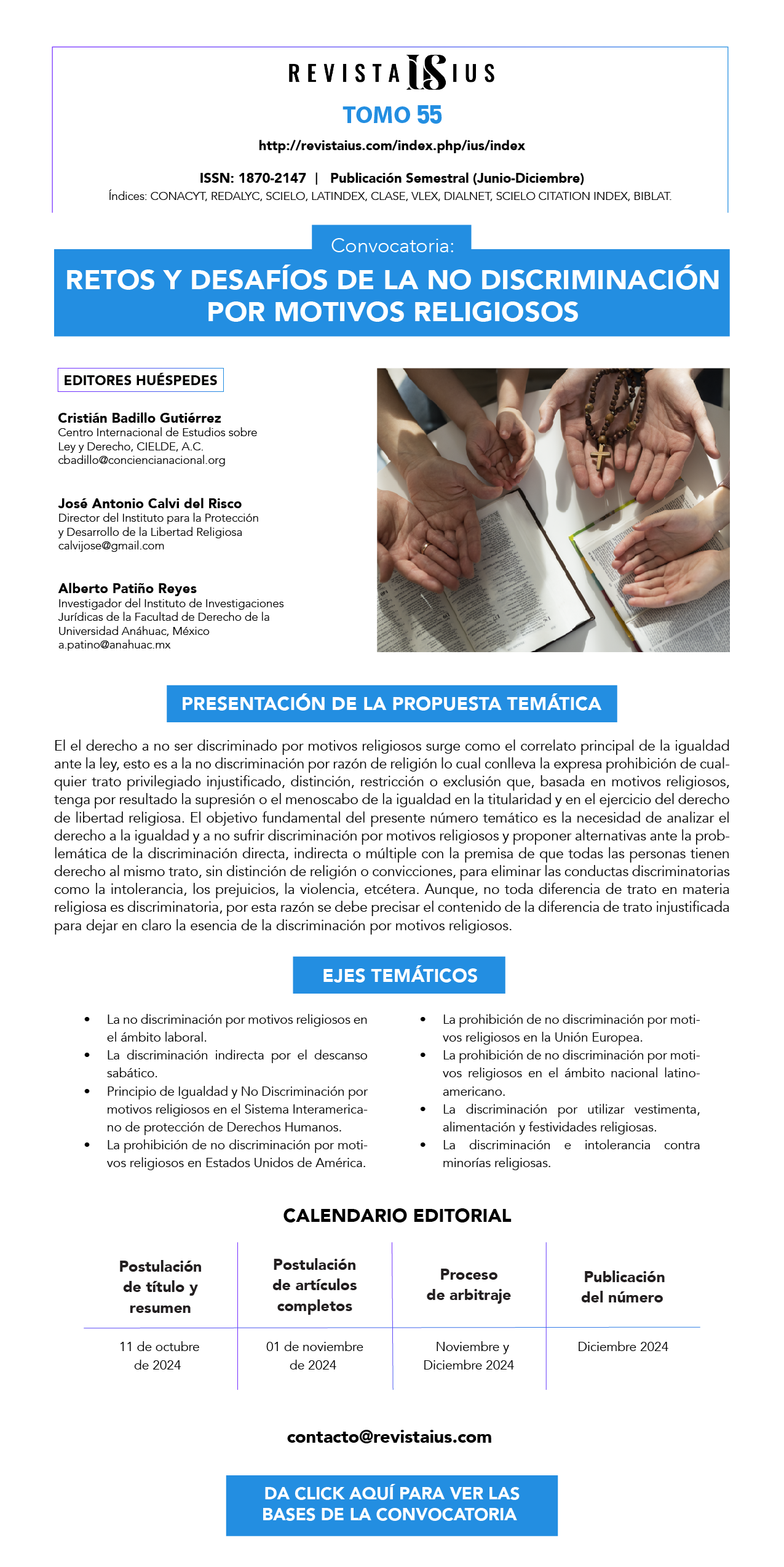The road to religious freedom in Latin America. Historical Analysis of Mexico, Colombia and Argentina
DOI:
https://doi.org/10.35487/rius.v19i55.2024.1050Abstract
Currently, religious freedom is considered a fundamental human right, addressed by various religions, governments and organizations as something that must be understood and guaranteed. However, achieving this recognition has been a long and complex process in countries such as Mexico, Colombia and Argentina. These nations, marked by the strong influence of the Catholic tradition inherited from Spanish colonization, have faced significant challenges in establishing legal frameworks that allow for the coexistence of different religious expressions. This article examines the historical evolution of religious freedom in these countries, with the aim of analyzing the legal and social transformations that allowed the recognition and protection of religious diversity in their specific contexts, where secularization processes, constitutional reforms and social movements have been key in the advance towards a broader religious pluralism.
Downloads
Downloads
Published
Issue
Section
License

This work is licensed under a Creative Commons Attribution-NonCommercial-ShareAlike 4.0 International License.
Revista IUS, published by the Legal Sciences Institute of Puebla A.C., is distributed under the Creative Commons Attribution-NonCommercial 4.0 International (CC BY-NC 4.0) license.
We authorize collaborators to upload a copy of their published work on their personal websites or any Open Access repository, provided that Revista IUS is specifically cited as the original source, indicating the year and issue of the respective example and adding the link to the webpage on which this publication can be freely consulted in toto and without charge: http://www.revistaius.com
Readers are free to:
Share, copy and redistribute the material via any medium or format.
The licensor cannot revoke these freedoms as long as you follow the license terms.
Under the following terms:
Attribution: You must give appropriate credit, provide a link to the license, and indicate if changes were made.
You may do so in any reasonable manner, but not in any way that suggests the licensor endorses you or your use.
NonCommercial – You may not use the material for commercial purposes.
If you remix, transform or build upon the licensed material, its distribution is not permitted.
Charges for managing articles: Revista IUS will not charge for receiving, processing or publishing articles (Article Processing Charge, or APC) submitted by authors.





